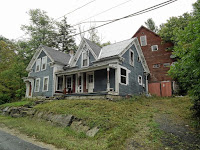It’s best to do careful research and evaluation of existing
homes for sale before buying your new home. By checking everything out beforehand it
ensures that your new home will be comfortable, cost effective, and holds its
value in the future.
- How much work will need to be done after you move in? (Make sure to look at all the cabinets, flooring, walls, appliances, etc) If you have to do home improvements how much will it cost you to do them.
- If there are damages to the home can you fix them on your own or will you need to hire a contractor?
- Is there enough room for storage and your furniture? (Measure you furniture before you buy to make sure everything will fit.)
- If you have kids, research the schools in the area. Check how the schools near-by perform and compare to other schools in the state.
- If you have pets, are you going to have enough room for them in the house and outdoors?
- Does the home condition and tax value match the seller’s price?
- Do you like the landscaping or are you going to want to change it? If you are probably going to change it, estimate how much it will cost. Take into consideration if you are going to be able to do it on your own or if you’ll have to hire a contractor.
- Check out the condition of the neighborhood that you’re looking at. How are the neighbors’ houses? Are they looking run down? The condition of the neighborhood could affect your home’s value if you plan on selling it in the future.
- Does the house require a mandatory membership? If so, find out how much and what it goes towards. Check out the neighborhood and talk to the neighbors to see how they like it in that area.
- Make a wish list of things that you’re wanting. This will make it easier to judge how much work may be needed after you move in.
- Make a check list of things that you should check out; such as, cabinets, appliances, faucets, toilets, heating and air systems, and lighting.

















